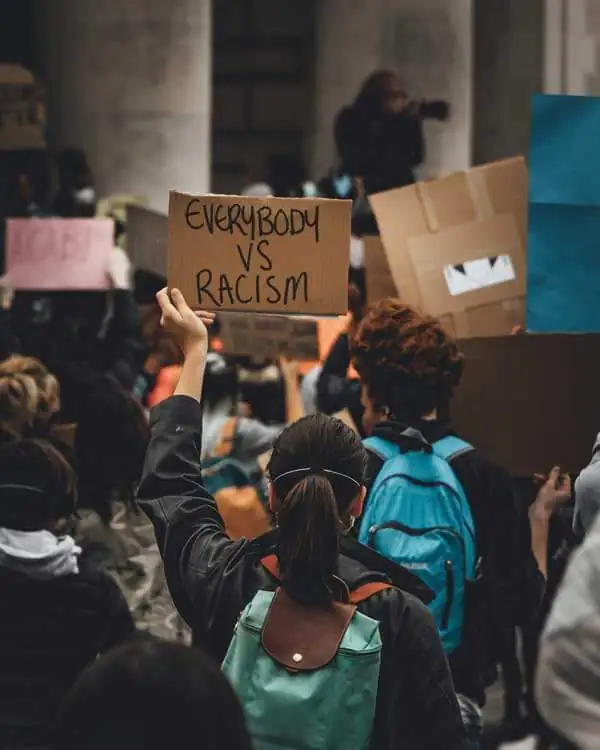
The recent killing of George Floyd, and protests following his death have brought to the forefront once again, the ongoing issue of anti-black racism. As we deal with own emotions of fear, anger, sadness and perhaps helplessness and confront our thoughts/attitudes and behaviours; any adult who parents, teaches, influences or cares for a young person in any way has the added task of supporting children and young people navigate their feelings and finding their voice to take a stand on social justice. This blog by no means provides all the answers, but is an attempt to help caregivers support children and youth; to start the conversation and to keep it going. It is written from my perspective as a psychologist and mom.
Starting the conversation with a child or teenager can be difficult, especially if it isn’t a topic you’ve discussed before. As with any difficult topic, being curious and asking questions about what your child/teenager has heard on the news, social media, or from friends is a great way to open the door. Often times we avoid topics in order to protect our kids, but if we don’t speak about these issues, kids will get their (mis)information elsewhere. We deprive them of the opportunity to process their feelings about it and we communicate to them that it’s not something we should talk about
Some tips for talking to kids:
- Ask them what they’ve heard or what they know; without jumping to correct or educate. First, just hear them out and ask them how they are feeling. You will learn about how little or how much they know, and can then correct misinformation if necessary.
- Validate all emotions that come up; there is likely a range, just as there is for us. Let them know it makes sense to feel angry or sad or confused or scared, or any other emotion they might be feeling.
- If your kids want to talk about the ways they can speak up about social injustice and anti-racism in their own lives, share the ways they can make their voices heard and support them when they speak up; whether it’s speaking out against bullying, not laughing at a racist joke, reporting injustice or educating their friends.
There are several Canadian organizations you can get involved with, get information from or donate to:
- Black Lives Matter Canada https://blacklivesmatter.ca/
- Black Youth Helpline https://blackyouth.ca/
- Black Health Alliance https://blackhealthalliance.ca
- Canadian Race Relations Foundation https://www.crrf-fcrr.ca/en/
Book suggestions for children and youth:
Under 5
- “Antiracist Baby” by Ibram X. Kendi
- “The Skin You Live In,” by Michael Tyler
Ages 5-8:
- “Each Kindness,” by Jacqueline Woodson
- “The Youngest Marcher,” by Cynthia Levinson
Ages 9+
- “Resist: 35 Profiles of Ordinary People Who Rose Up Against Tyranny and Injustice,” by Veronica Chambers
- “Not My Idea: A Book About Whiteness,” written and illustrated by Anastasia Higginbotham
- “The Hate U Give” By Angie Thomas
Ages 12+
- “All American Boys,” by Jason Reynolds and Brendan Kiely
- “Stamped: Racism, Antiracism, and You,” by Jason Reynolds and Ibram X. Kendi
- “This Book Is Anti-Racist: 20 Lessons On How To Wake Up, Take Action, And Do The Work,” By Tiffany Jewell
Find your way
Our clinicians provide safe, compassionate support to help people manage mental health challenges using evidence based approaches including CBT, DBT, and ACT.
